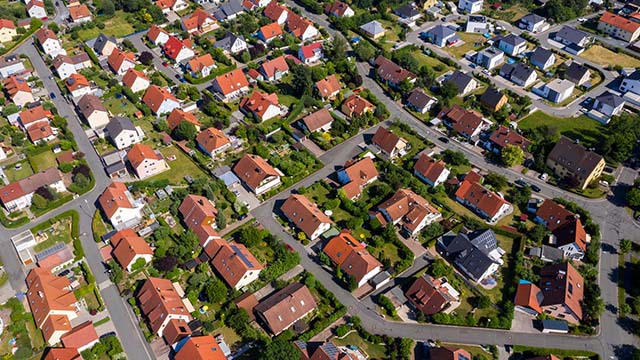In Booming Markets, Homebuyers Paying Above Long-term Pricing Trends
By Paul Owers | 09/28/2021
Tags: Finance | Housing-Ranking | Press-Releases | Real-EstateCategories: Research
FAU Economist: Demand Outstripping Supply to Create Overvalued Properties

Homes selling for more than they should is a worsening problem in Austin, Texas, as the metropolitan area posted the biggest premium increase among the nation’s 100 largest housing markets, according to new rankings by researchers at Florida Atlantic University and Florida International University.
The average home in Austin last month fetched 55.26 percent above its long-term pricing trend, up from 50.72 percent in July. Austin remained the nation’s second-most overvalued housing market, behind only Boise, Idaho, where homes are overpriced by 80.66 percent, on average, based on past pricing history. The full rankings can be viewed here.
“Austin, while staying at No. 2, was the real shocker,” said Ken H. Johnson, Ph.D., an economist for FAU Executive Education within the College of Business. “Its premium score increased almost five percentage points in a single month. Clearly, buyer demand is significantly outpacing supply in Austin and a lot of other areas.”
Another metro market with a steep monthly premium increase was Fort Myers, where homes, on average, were overpriced by 27.34 percent, up from 23.28 percent in July. Fort Myers jumped five spots in the rankings to the nation’s 34th most overvalued market.
Consumers buying in these and other overpriced areas are paying near peak prices and risk being unable to land significant returns on their investments in homeownership, according to Johnson and Eli Beracha, Ph.D., of FIU’s Hollo School of Real Estate.
“In some markets, recent buyers could be stuck for several years if prices level off or fall,” Beracha said. “Recently people are used to seeing significant returns from homeownership. However, if they’re buying at near peak prices and the market fizzles, they may have to stay in the homes a lot longer than planned in order to see even reasonable returns.”
Johnson and Beracha analyze the nation’s 100 largest metro areas on a monthly basis to help buyers, sellers, brokers and policymakers make more informed real estate decisions. The researchers use publicly available data from the online real estate portal Zillow or other providers. The data, which extends from January 1996 through the end of August, includes single-family homes, townhomes, condominiums and co-ops.
The Top 10 most overvalued housing markets remained the same from July, though Phoenix jumped two spots in the most recent rankings to No. 6, while Spokane, Washington and Salt Lake City, Utah, each fell one spot. Ogden and Provo, Utah, also are in the Top 10.
While Boise is by far the nation’s most overvalued market, its premium rose by only tow basis points, an indication that prices there may be starting to level off, according to the researchers.
Johnson and Beracha said homes are selling for a discount in only four of the 100 markets: Honolulu, Hawaii; Virginia Beach, Virginia; Baltimore; and New York. In July, Baton Rouge, Louisiana, also was considered undervalued, but the area moved to slightly overvalued in September.
Among Florida metro areas, Tampa surpassed Lakeland as the state’s most at-risk market.
Tampa is the nation’s 18th most overvalued market, with homes selling, on average, for 33.29 percent above their long-term pricing trend. Lakeland is No. 20 on the national list, with homes selling at a 32.55 percent premium.
Surprisingly, metro Miami, which includes Broward and Palm Beach counties, was the least overvalued market in Florida with a premium of 14.29 percent. Miami jumped two spots in the latest rankings to No. 72 overall.
“While the Miami metro remains fairly low in these rankings, its premium score increased 1.38 percentage points,” Johnson said. “This indicates that the average home price in the Miami area remains on the rise.”
-FAU-